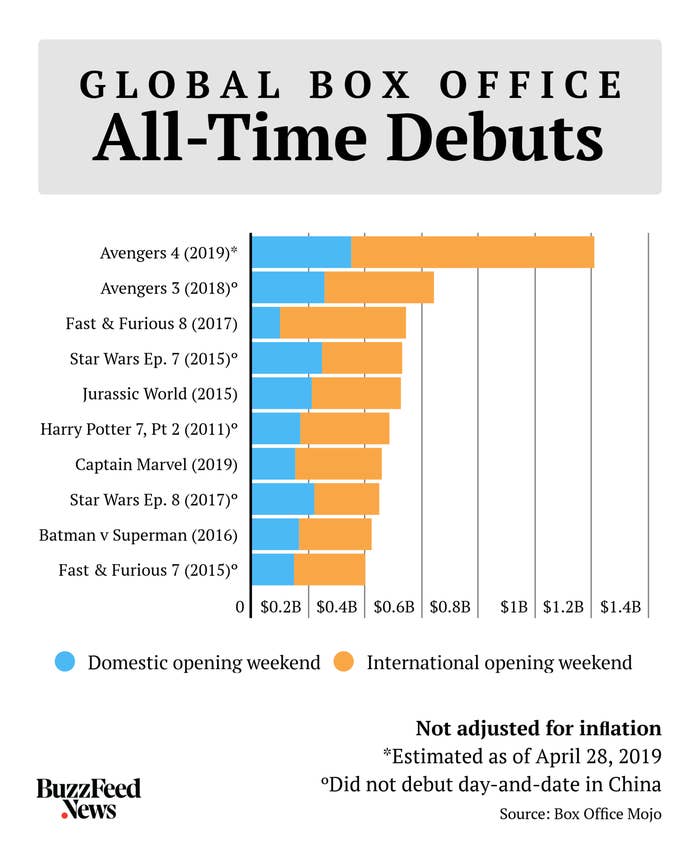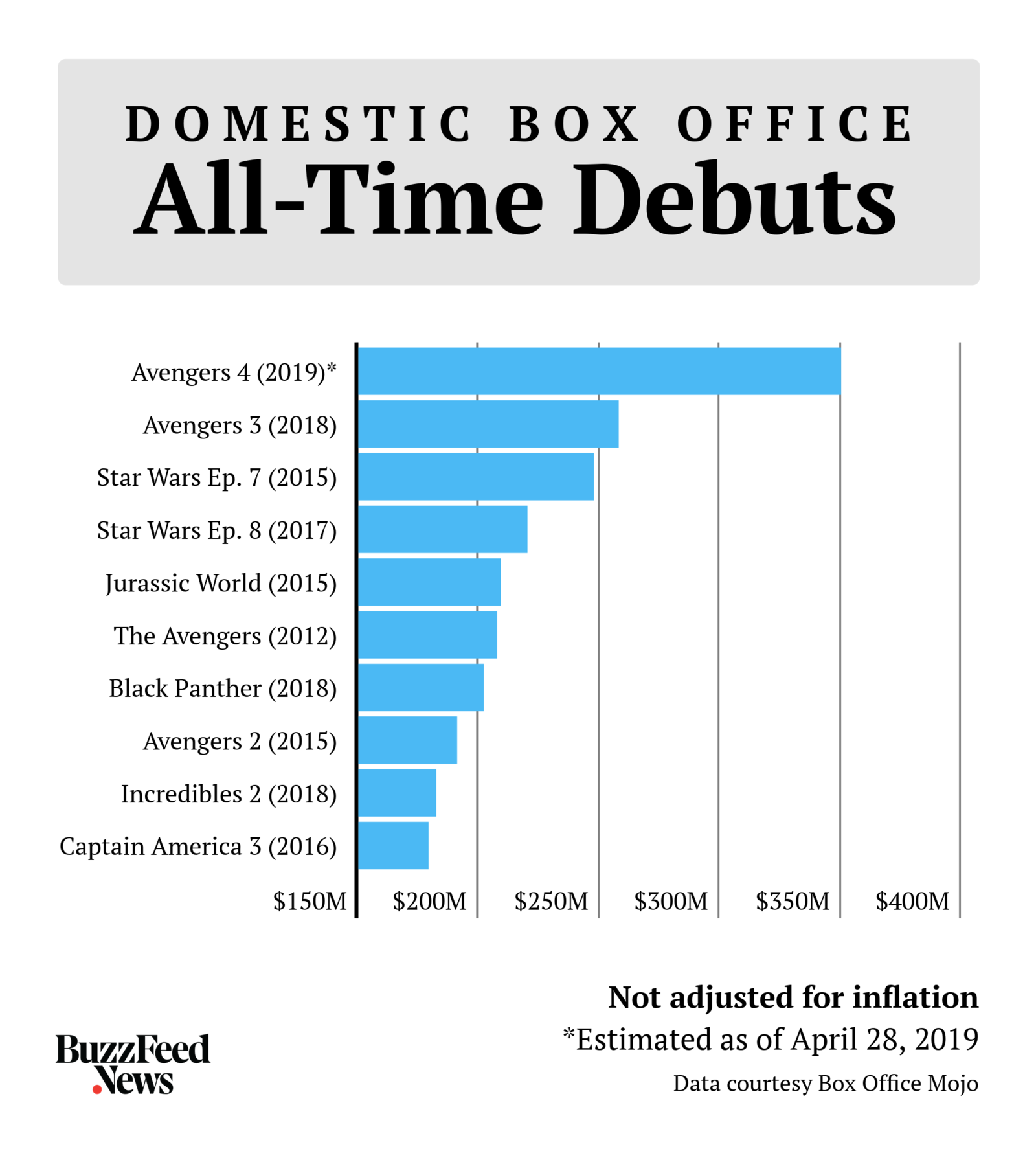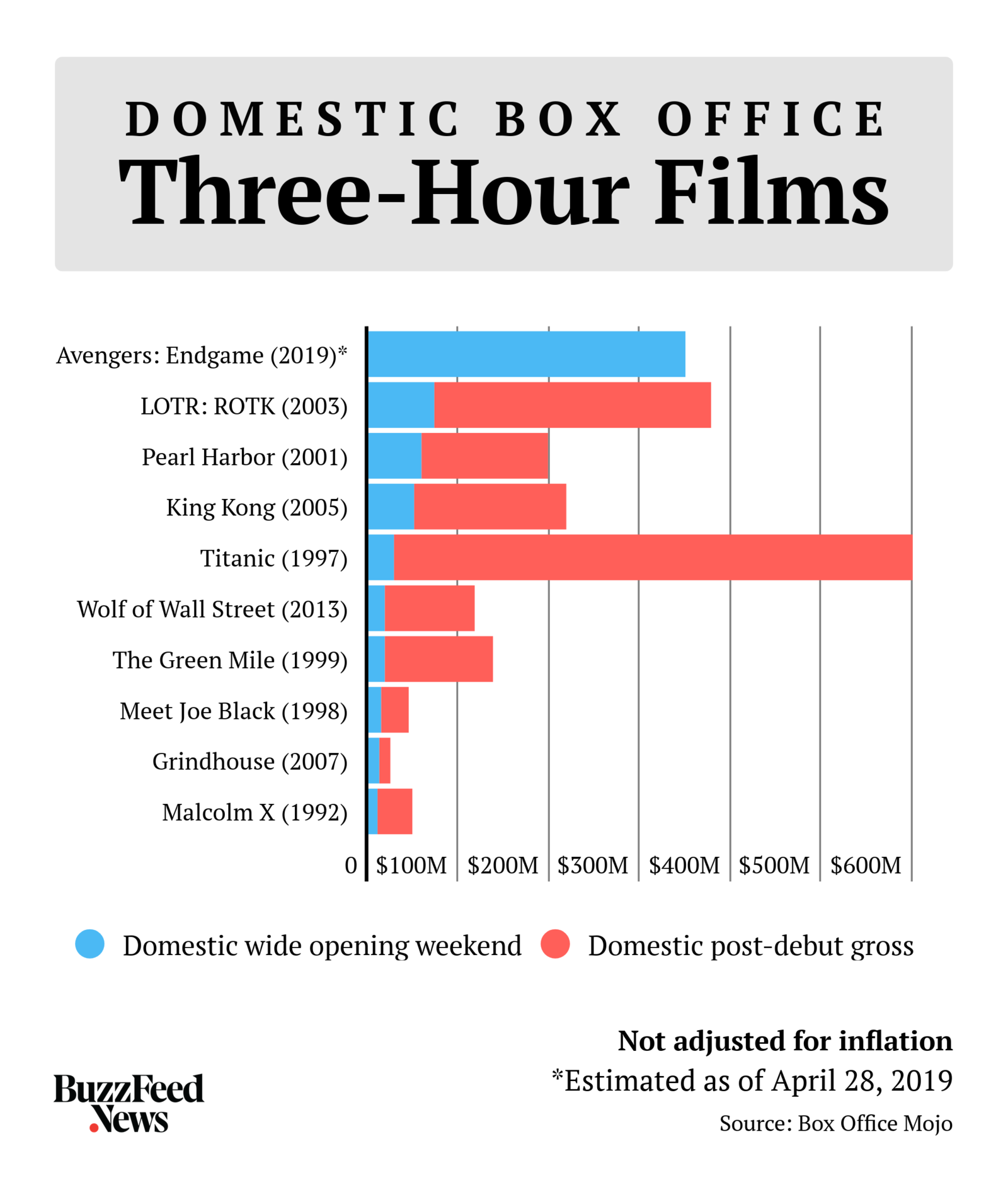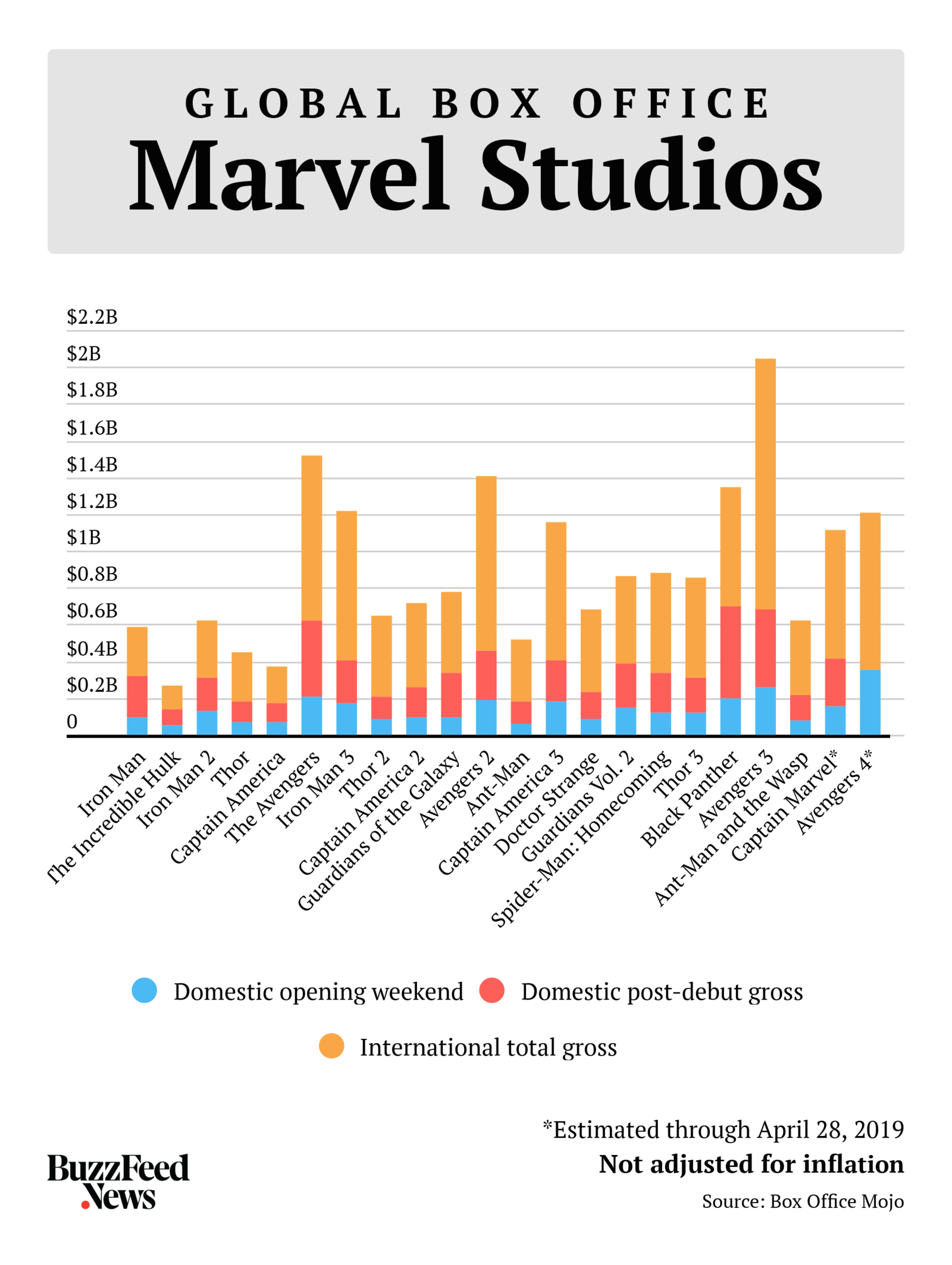
What words could possibly describe the $357.1 million Avengers: Endgame has grossed in its domestic theatrical debut, and the $1.22 billion it has earned worldwide?
Colossal? Gargantuan? Hulkmongous?
As it stands, the 22nd film produced by Marvel Studios has not only shattered practically every single box office record imaginable — the biggest worldwide debut, the biggest domestic debut, the biggest domestic opening day — it has fundamentally altered what Hollywood perceives is even possible for a film’s financial success. It’s as if, after years of trying to land on the moon, humanity suddenly reached Mars.
Consider Endgame’s global box office record. After opening internationally on Wednesday in 21 markets — including China — Endgame earned an estimated $643.7 million worldwide through Friday, including $156.7 million on its first day in the US and Canada. That’s already the best worldwide opening ever, surpassing the $640 million record set last year by Avengers: Infinity War. And then Endgame made $579.9 million more through Sunday.

Roughly 27% of that titanic (elephantine? Thanostronomical?) global haul came from China. As is the case in virtually every international market, Endgame broke the all-time box office record in China, earning roughly $217 million US in its first three days, and an estimated $330.5 million through Sunday.
Due to the country’s longstanding quota system allowing for only 34 non-Chinese films per year (give or take), it’s still not terribly common for a Hollywood movie to open over the same weekend in China as it does in the US and elsewhere — Infinity War didn’t, nor did Star Wars: The Force Awakens. But Endgame’s massive haul in China underscores not only how critical the country is now to Hollywood’s bottom line, but how deep an impact Marvel Studios has made within China’s carefully stage managed cultural landscape.
Then there’s Endgame’s domestic box office record. Prior to this weekend, the most the domestic box office had ever grossed in total over a single weekend was last year, when Infinity War’s debut boosted overall grosses in the US and Canada to $314.5 million from April 27–29, according to Comscore.
Endgame blew that figure away all on its own, helping to set a new single-weekend overall record of $401.7 million.

Even adjusting for ticket price inflation, Endgame’s domestic debut remains lightyears ahead of every other film, blasting well past a $300 million threshold that many thought was mathematically impossible to reach.
The issue, it was believed, was Endgame’s three-hour runtime. Some of the most popular movies of all time from Hollywood’s golden era in the mid–20th century are well over three hours long. But you can count on one hand the number of modern blockbusters from the last 25 years that run past the three-hour mark.

Studios have grown reluctant to release any movie at that length for the simple reason that it significantly limits the number of times the film can be shown in a single theater in a day.
Demand for Endgame, however, has proven so insatiable — Fandango reported that it had sold out over 8,000 showtimes in advance purchases — that many multiplexes chose to blanket Endgame on most (if not all) of their available screens. Some theaters added late night and early morning screenings, and a handful of theaters even elected to not close at all over the weekend.
Prior to the advent of digital projection in movie theaters, this kind of total saturation for a single movie was cost-prohibitive. Creating and shipping a single physical print for a film can run a studio $1,500, and each of those screenings needs to be supervised by a projectionist. Now, by contrast, theater managers can simply send a movie’s much cheaper digital file to their theaters’ unmanned digital projectors. It’s how Marvel Studios’ parent company Disney can release Endgame in 4,662 theaters — another record.
But Disney also inadvertently discovered a different logistical limit to how much a single blockbuster can dominate a weekend: Many movie theaters just aren’t set up to handle a movie at this scale.
I love Avengers: #Endgame as a movie lover. I hate, hate, hate it as a movie theater manager. We just simply are not equipped to handle this kind of business, and it's killing us. Not enough staff. Not enough registers. Not enough ovens. Not enough space for queues. It's insane.
It turns out that having this many people flood into movie theaters over 72 hours to see just one movie is a bit like trying to carry Thor’s hammer inside a sock — you can do it, but good god, that poor sock!
Nonetheless, audiences did not appear to mind: With a rare A+ rating from audience polling firm CinemaScore, and 29% of audiences telling Comscore they would see the film again, Endgame stands to continue raking in untold riches through the summer.
The only lingering box office records left for Endgame to beat is whether it can also become the first movie to earn over $1 billion domestically and $3 billion worldwide, surpassing the respective all-time records set by The Force Awakens ($936.7 million domestic total gross) and Avatar ($2.78 billion worldwide total gross). Those may be more difficult bars to clear, though, as theaters dial down their superheated release pattern and Endgame’s runtime finally does begin to inhibit how often it can be screened in a day.
Endgame is at least guaranteed to propel Marvel Studios past the $20 billion mark in global box office grosses.

It would be a crowning — and fitting — achievement for Marvel Studios if Endgame does become the highest-grossing film of all time, reflecting the profound impact the company has had on Hollywood over this past decade.
Since Marvel Studios launched with Iron Man in 2008, it has remade the movie franchise into something akin to a big-screen TV series, and forced the rest of the film industry to chase the “cinematic universe” model whether it made sense or not.
No one has come close to matching Marvel Studios, however, not even sister company Lucasfilm, which learned the limits to audiences’ appetite for Star Wars titles in 2018 after Solo: A Star Wars Story severely disappointed at the box office.
While Endgame has broken the paradigm for box office success, it’s unclear when, or if, any other studio could match the monumental creative challenge of marshaling a cinematic universe populated with franchises audiences enjoy, starring actors audiences love, and then weaving those individual franchises together into a series of mega-franchise movies that culminate with what amounts to the biggest, most expensive season finale ever attempted. It took Marvel Studios 11 years, hundreds of actors, and billions of dollars to make that happen, and no current studio appears to have the wherewithal or patience to equal that effort.
No studio, perhaps, except for Marvel Studios.
UPDATE
This story has been updated to reflect the actual domestic and global box office grosses for Avengers: Endgame through Sunday, rather than projections from Sunday morning.
